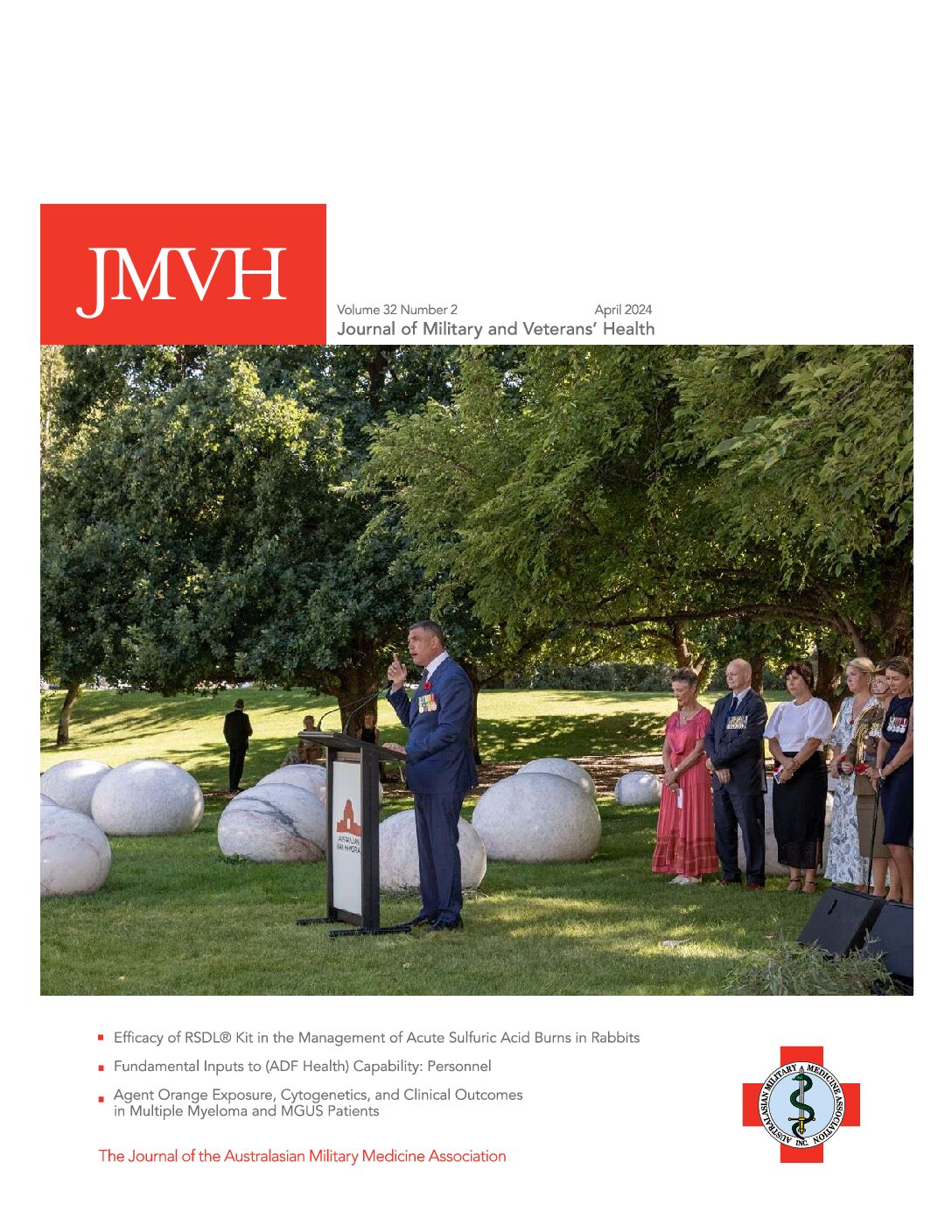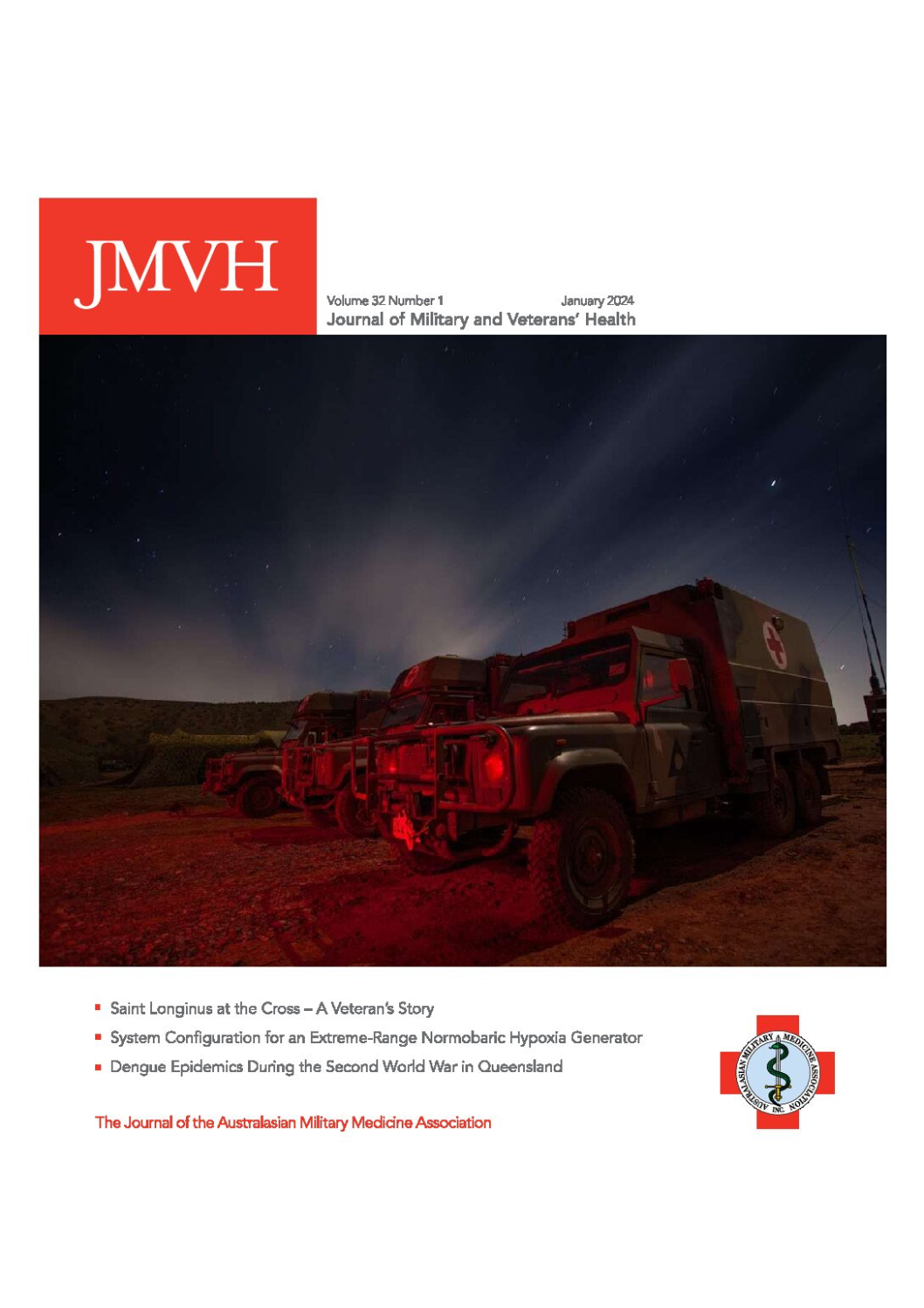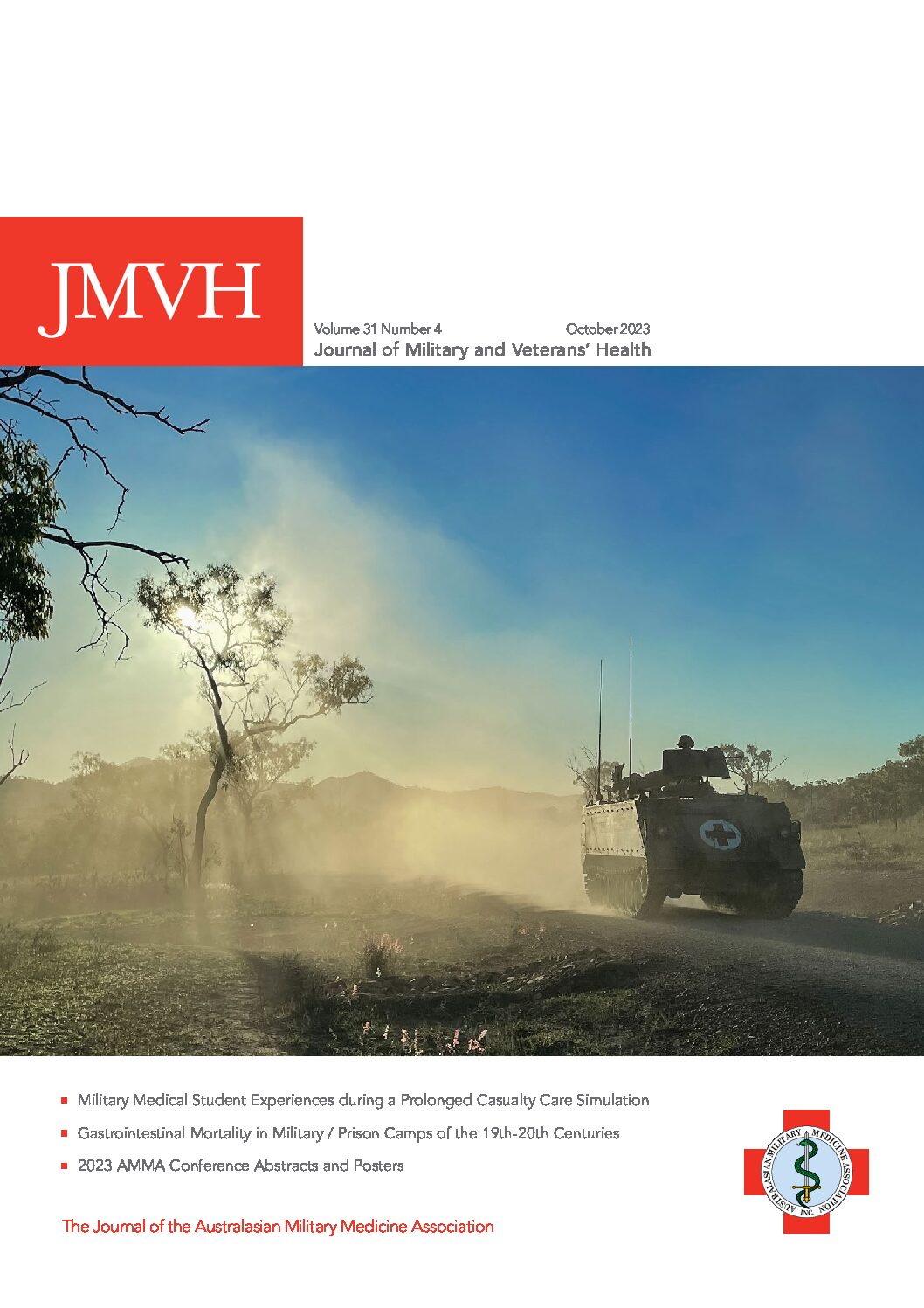As we head towards Anzac Day 2008, there are, as always, many things that we can contemplate that impact on military and veterans’ health matters; things in the past, contemporary and for the future.
The news over the last month or so has been filled with the discovery of the wrecks of HMAS Sydney and HSK Kormoran, both lying in deep water off the Western Australian coast. The discoveries have ignited the long-standing controversy over how the Sydney came to be in a position where it was comprehensively destroyed.
The images available at this time seem to be pointing towards what was previously thought – Sydney was sunk by Kormoran through the effective use of the latter’s armament, much of which was concealed (including, apparently, underwater torpedo tubes). So the conspiracy theories that linked a Japanese submarine to the action now appear to be at an end.
The first images of Sydney also tend to point towards the reasons why she sunk and why there were no survivors. Initial reports indicate severe upper deck damage, including destruction of the bridge. It is reasonable to guess that command of the ship was quickly lost and the ability to coordinate action and damage control also degraded to the point where salvage could not occur.
These events draw attention also to the lot of the medical staff on board during this action. Managing the injuries to personnel of such catastrophic destruction is difficult to imagine, and the hopelessness of the cause would itself be demoralising. But it is safe to assume that the medical staff did their utmost to relieve the suffering of the injured despite almost impossible conditions.
We have recently heard the announcement of the new leaders of the Defence Force. Air Chief Marshal Angus Houston’s extension for a further three years is clear testament to the way in which he has led the ADF since taking up the rôle some three years ago. Air Chief Marshal Houston has been a great supporter of AMMA during his time in office, opening two of our conferences, and I hope we will have the opportunity to welcome him again.
The three new Service Chiefs – Rear Admiral Russell Crane RAN, Lieutenant-General Ken Gillespie and Air-Vice Marshal Mark Binskin RAAF – have been charged with resolving the recruiting crisis in the ADF. This challenge will be immense, as maintaining a volunteer Defence Force in times of peace (but with involvement in a relatively unpopular conflict) and with the economy booming in the face of a skills shortage must be all but impossible. It will take some great leaps of faith to embrace radical strategies if real progress is to be made.
Closer to AMMA, we all congratulate Brigadier Paul Alexander RAAMC on his promotion to Major General and appointment to the position of Head Defence Health Services later this year. Paul will also face the challenge of recruitment to the Health Services during difficult times and will also need to consider some innovative measures in the face of a severe nationwide health workforce shortage and the competing pressures of the public and private health sectors.
Paul Alexander’s appointment presages the departure of Air Vice Marshal Tony Austin RAAF, who has led the Defence Health Services for six years, initially as Director General Defence Health Services and since May 2005 as Head Defence Health Services. Tony has had a long and distinguished career in the Air Force and in a variety of joint appointments. He has been a strong supporter of AMMA. The Association has enjoyed a close working relationship with Tony, and his support for the jointly run Defence Health Conferences and the establishment of the Journal of Military and Veterans’ Health have been pivotal to the success of both.
I would like to take this opportunity, on your behalf, to thank Tony for his support and to wish him all the best for the future.
Anzac Day yet again reminds us of the cost and sacrifice of war. It will be a time for reflection on the efforts of those who have defended our way of life, of those who have thus lost their lives and of those who bear the scars of their service.
Anzac Day is not only about wars past – the Great War, World War II, Vietnam and others – but serves as a potent reminder that present-day members of the ADF are also serving in combat operations. A reminder that some may pay the ultimate sacrifice and yet others may bear the physical and mental scars of their service. A reminder that the task of the Defence Health Services is to support and succour in battle and to rehabilitate afterwards. A reminder that the process of rehabilitation often goes well beyond a member’s service life and must be supported in other ways following retirement.
It is for this reason that the Association, through its conferences and its Journal, remains focussed on promoting the study and development of all matters relating to military medicine and veterans health.
Please specify the URL of your file





